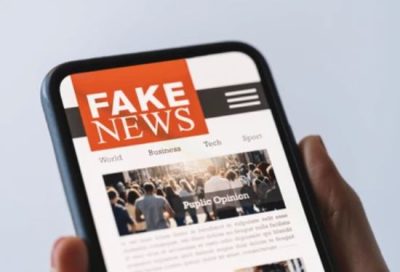Introduction
There has been increased transmission of false and malicious information on various internet platforms, even while elevating movements such as #MeToo and #BlackLivesMatter, which were created to provide a platform for minorities to raise their voices. More specifically, the social media platforms that are easy to use and through which any information can be spread speedily and it is difficult to remove errors in the information spread through these social media platforms contribute to the spread of false information.
Since the 2016 US elections, the circulation of misinformation or inadvertent lies has gotten the world’s attention as it raises concerns.
The spread of disinformation for political purposes is also a concern.
Fake news and rumours spread like wildfire, which can be referred to as unsubstantiated information because of the social connections, unknown sources, and personal biases that ultimately lead to conflicts and confusion. Many times factually correct information is being used to instigate hatred among masses or used in other forms also to raise violation again specific people or groups of people.
Therefore, the spread of false information via social media platforms is a serious problem that needs to be resolved.
People View Politicians Not as “Fake News” but as Leading Disinformation Culprits.
Social media, especially Facebook, is a major source of public concern regarding online disinformation. Interestingly enough, however, the public credits politicians and domestic players rather than “fake news” per se for disseminating inaccurate information. The main source of worry, according to 40% of respondents in 40 nations, was their own government, politicians, or political parties, as opposed to 14% for activists and just 13% for journalists.
This is consistent with other studies showing public anxiety over political misinformation and subpar reporting, as opposed to a restricted definition of “fake news” intended to cause intentional harm. Although there are instances of material that may be shown to be erroneous, this is not the majority of what individuals come across and find concerning.
[Image Sources: Shutterstock]
A significant obstacle is the general public’s anxiety and lack of clarification. Even when some information is problematic but not obviously incorrect or harmful, measures aimed at removing particular types of disinformation may unintentionally restrict a far wider spectrum of information. Numerous UN and human rights organisations have noted that this may violate important rights to free expression.
Politicians using information as a weapon and media outlets not upholding standards are perceived as larger problems by the public than individual cases of fake news. To address this large problem, there is a need for a specific solution that will not compromise people’s right to freedom of speech and expression or the integrity of official documents and information.
Platform Content Moderation May Pose a threat to Fee Speech
Content Moderation is beneficial in many ways but extended rules applied for content moderation can lead to restricting the right to free expression because:
- There is a need for solutions that should be consistent, impartial, and have sophisticated approaches to address the intricacies of online communication.
- There can be a rise of transparency issues because of the removal of content without proper explanation which can lead to mistrust.
- Dependency on AI software for content moderation poses risk because of limitations of technology and the political nature of defining ‘misinformation’.
Therefore handling malicious or harmful information available online is a crucial process, hence it must be done carefully so that it will not infringe the right of free speech. The solution that will be used in this process should be transparent consistent and independent with a nuanced approach that can account for the complexities of online discourse.
Recommendation for Combating Misinformation Without Limiting Freedom of Speech Adoptable Reactions:
- Various studies have recommended that instructions for media literacy, checking facts, and labelling content are effective methods for lessening the impact of social cohesion and disinformation.
- Good and efficient journalism automatically wards off misinformation. Therefore, the government should help create resilient independent and well-rounded news media platforms by enforcing regulations on openness and providing funds.
- The European Convention has provided strong guidelines on human rights. Based on these human rights, legal limitations should be set for online expression. According to international laws, the government should uphold and respect human rights both online and offline.
- Platforms which use AI to detect misinformation in their moderation procedure should be more forthcoming.
- For independent monitoring, multi-stakeholder social media councils, accountability systems, and independent supervision should be applied to platforms.
- All the official demands ought to be recorded by the websites. Demands like requests or directives by the government to remove any information.
- Research shows that national political leaders and media institutions are major suppliers of false information.
- To avoid violation of free expression or to address serious damage there should be the careful implementation of restrictions on political speeches or social media activities.
Conclusion
There are methods and frameworks available to address the issue of the circulation of misinformation while upholding basic rights. There is no single solution that can be applied to everyone or in every case, but there are certain methodologies that can be used to come up with sensible solutions to defend the freedom of speech.
Author: Rashi Sharma, in case of any queries please contact/write back to us via email chhavi@khuranaandkhurana.com or at Khurana & Khurana, Advocates and IP Attorney.
References
- https://www.brookings.edu/articles/how-to-combat-fake-news-and-disinformation/
- https://www.ncbi.nlm.nih.gov/pmc/articles/PMC9910783/
- https://en.unesco.org/sites/default/files/journalism_fake_news_disinformation_print_friendly_0.pdf
- https://www.ncbi.nlm.nih.gov/pmc/articles/PMC8853081/
- https://reutersinstitute.politics.ox.ac.uk/news/how-respond-disinformation-while-protecting-free-speech




